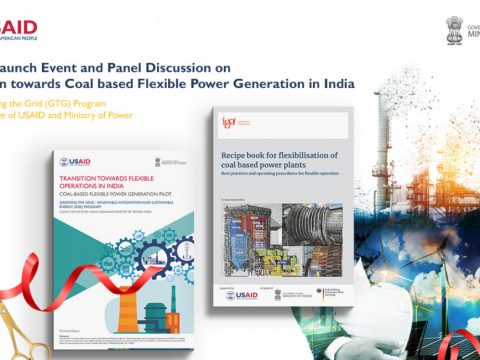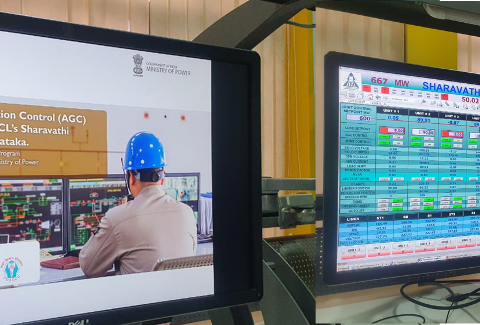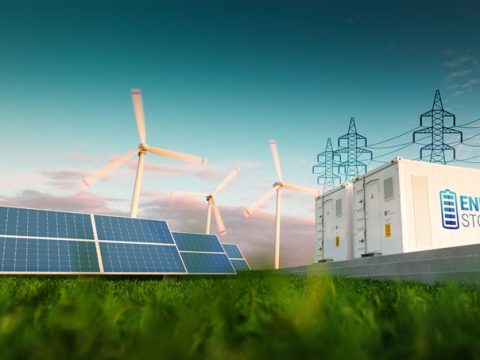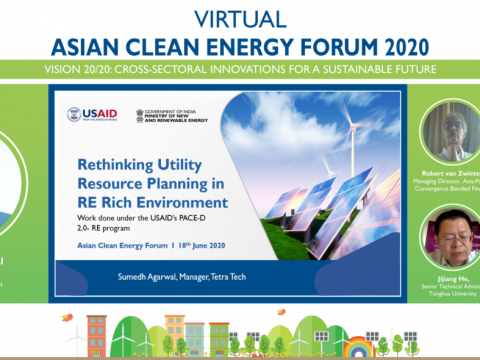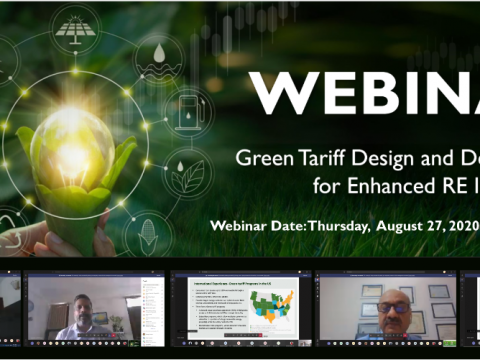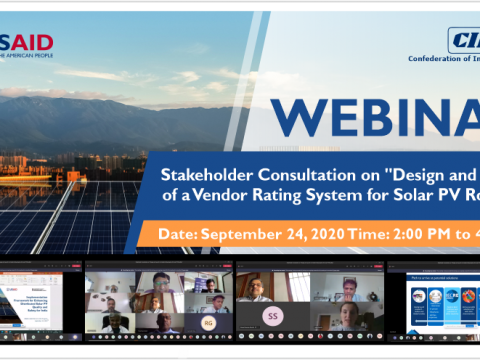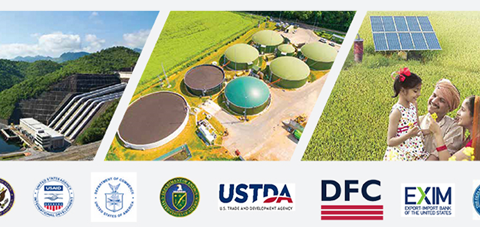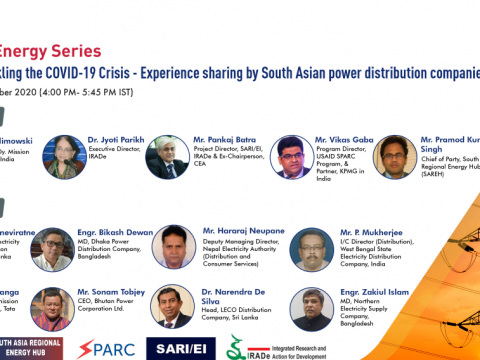2020
India’s has set an ambitious renewable energy (RE) target — increasing its RE capacity to 175 GW by 2022 — to meet rising energy demand and decarbonization goals. However, large-scale integration of energy from variable renewable sources (wind and solar) poses a major challenge to grid stability. This challenge can be addressed by making the country’s existing coal-based fleet operate flexibly to balance any fluctuations in energy generation by renewables. Flexible operations of coal-based plants formed the theme of a virtual event, a webinar, that the Greening the Grid-Renewable Integration and Sustainable Energy (GTG-RISE) initiative conducted on October 16, 2020. GTG-RISE, a joint initiative of USAID and the Ministry of Power, Government of India, has been undertaking a series of innovation pilots and demonstrations to validate technologies and solutions that will support large-scale integration of RE into the grid; one of its pilot interventions has been on coal-based flexible generation.
The event marked the public release of two important publications and a high-level discussion with key stakeholders from India and outside. The first release was a summary report on GTG-RISE’s flexible generation pilot, conducted in partnership with National Thermal Power Corporation Limited (NTPC) at the national level and Gujarat State Electricity Corporation Limited (GSECL) at the state level. Titled ‘Transition towards flexible operations in India’, the report details the technical feasibility studies and low-load test runs carried out at coal-fired plants and the measures recommended for successful flexibilization. The second release was the book titled ‘Recipe Book for Flexibilization of Coal based Power Plants’. Penned by A.K. Sinha, a stalwart in the energy sector and currently Senior Advisor with GTG-RISE, the book captures rich insights from his personal journey and experiences over a 30+ years’ career in the field of coal-based thermal generation. The publications’ release was followed by a high-level panel discussion, where senior representatives from the Ministry of Power, NTPC, GSECL, Karnataka Power Corporation Limited (KPCL), GIZ’s Indo-German Energy Programme, and VGB PowerTech discussed India’s journey and the path ahead for flexibilization.
Speaking of the critical need for flexibilization, Vivek Kumar Dewangan, Joint Secretary (Thermal & International Co-operation), Ministry of Power, stated that “One-thirds of India’s coal-based power generation capacity should be made ready for flexible generation and dynamic simulation models could play a key role… The study reports supported by USAID and IGEF are pre-cursor to ascertain flexible operations for many of these units.” The critical importance of flexibilization was similarly noted by Ramesh Babu, Director-Operations, NTPC: “As India strides towards it RE goal of 175 GW by 2022, a major concern for thermal utilities and grid operators is how to ensure grid stability in the face of huge RE penetration. GTG-RISE has worked to find a solution to this problem.” The impact of GTG-RISE pilot’s also reflected in the words of H.N Baxi, Executive Director-cum-Managing Director (A), GSECL, who stated: “Our partnership with USAID’s GTG-RISE on flexible operation has given us the confidence to balance our operations. Going forward, policy and compensation will play a critical role in scaling-up flexible operations.”
GTG-RISE’s coal-based flexible generation pilot has created a body of evidence to inform a long-term flexibilization roadmap for India. Importantly, the pilot is scaling-up, with GTG-RISE now partnering with KPCL. “With RE contribution of 31% in 2019–20, presently at 40%, it is high time for Karnataka to think about flexibilization. We need to take conservation, technical possibilities of balancing the grid, and associated cost into consideration…Our pilot with USAID’s GTG-RISE is guiding us in the right direction,” shared V. Ponnuraj, Managing Director, KPCL.
Flexibilization is an imperative for India’s transitioning energy sector, which USAID has been supporting as a partner committed to India’s reform agenda. Expressing enthusiasm for this partnership, Karen Klimowski, Indo-Pacific Coordinator, USAID/India, noted: “USAID’s GTG-RISE works to support the Ministry of Power’s efforts to build a robust, resilient, self-reliant power sector for India. USAID is indeed very proud to be a long-standing partner in India’s transformative journey.”
The GTG Program aims to support GOI’s efforts to manage large-scale integration of renewable energy (RE) into the grid. GTG is a key initiative under Asia Enhancing Growth and Development through Energy (EDGE) and is implemented by Deloitte Consulting.
Webinar recording of this event is available here.
Presentation


